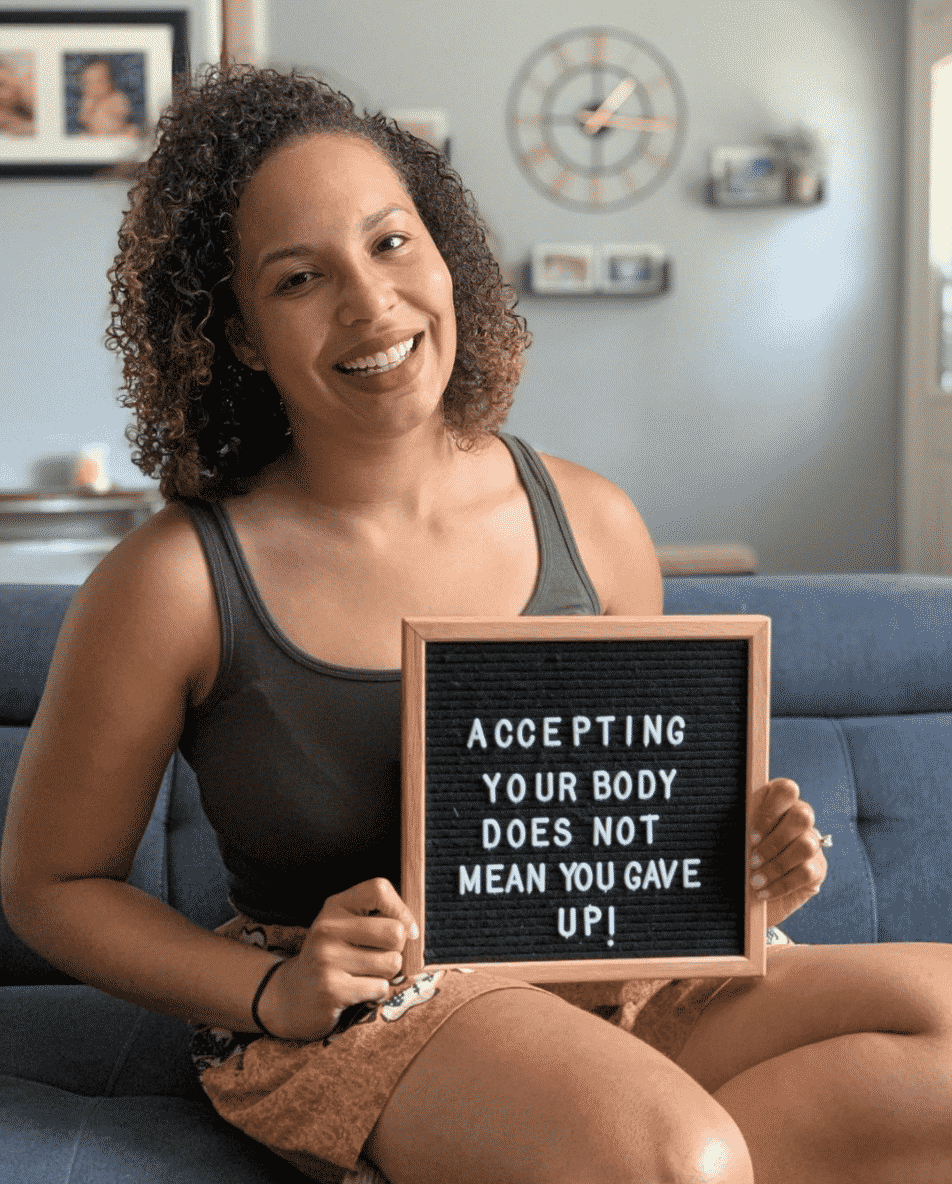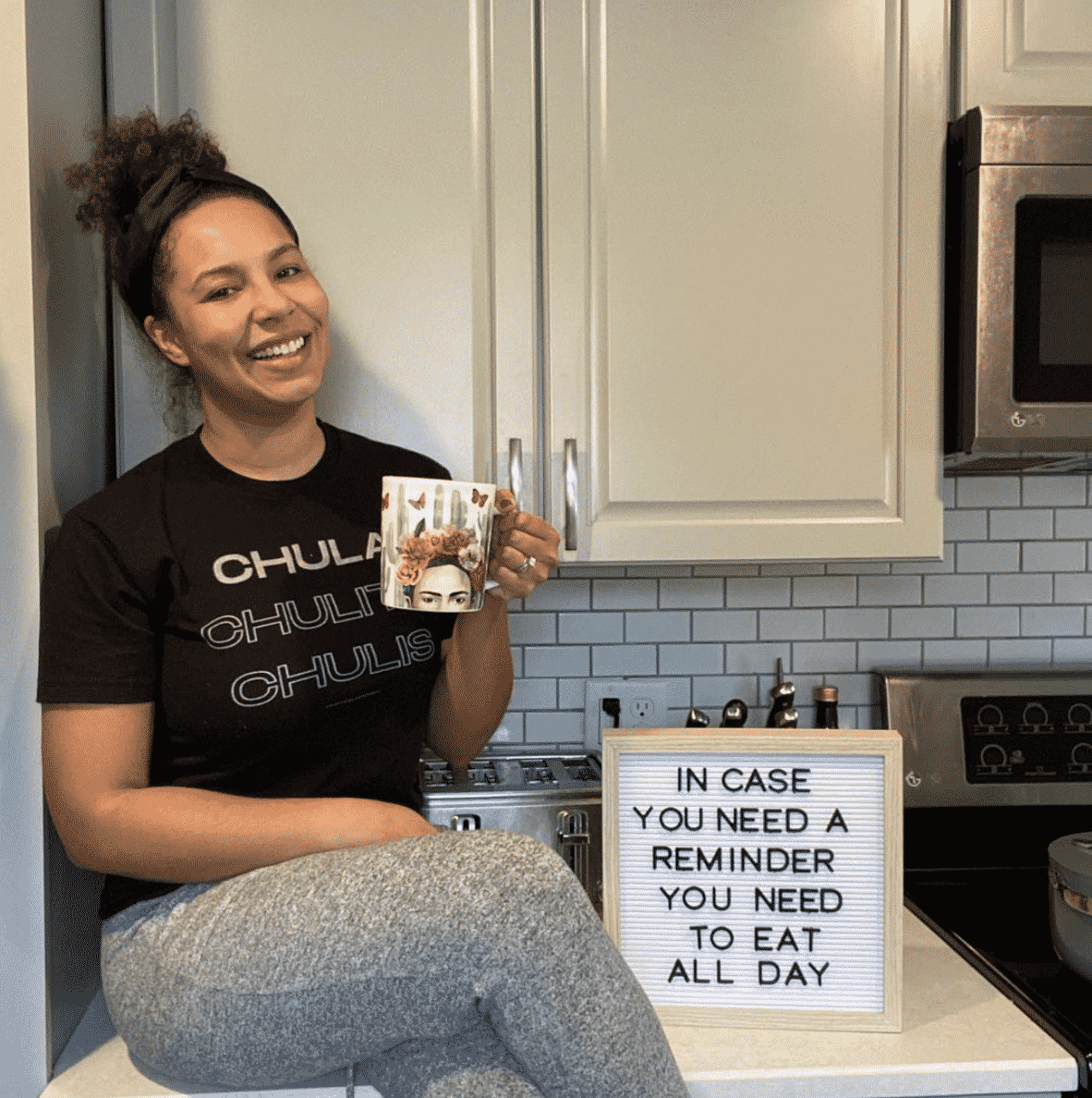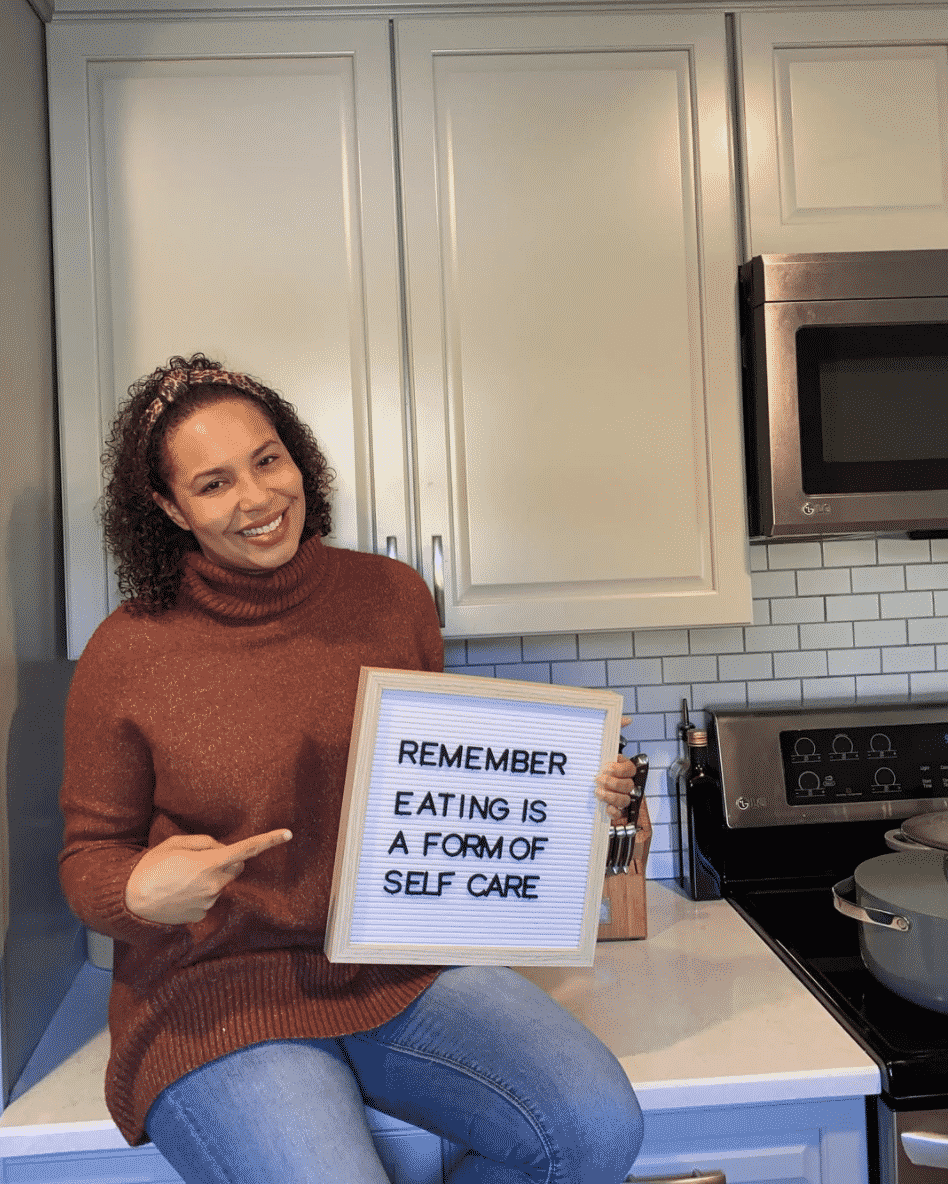5 Steps Latinas Can Take To Improve Their Relationship With Food, As Recommended By Anti-Diet Dietitian Dalina Soto
The Covid-19 pandemic has forced most of us to self-isolate in our homes for months. Alone and distressed, it’s human nature to want to feel like we are in control of something amid so much uncertainty. For many, food has become the jurisdiction where we seize our power. Buzzy diet fads like keto and intermittent fasting have infiltrated our kitchens. But rather than improving our health, certain diets can end up being harmful to our mental and physical wellness. Understanding the dangers of the pervasive diet industry, especially in Latinx communities, Dalina Soto is hoping to remedy women’s relationship with food and our bodies.
For more than a year, the Philadelphia-based owner of Your Latina Nutritionist, a bilingual, culturally-competent anti-diet dietitian practice and social media platform, has been working directly with Latinas to help them eat without shame or self-examination and lead lives of food freedom and body neutrality.
“I felt like I needed to talk to my community. There’s not enough Latina dieticians, and, because of that, there’s a lot of misinformation, a lot of whitewashing, a lot of ideas that we need to stop eating our cultural foods. And this is harmful,” the Dominican-American dietician tells FIERCE.
Diets and nutrition programs typically urge Latinas to give up dishes that are tied to our heritage. According to Soto, this leads to troubling outcomes, including women feeling shame, or even fear, to eat traditional meals as well as communities losing their ancestral provisions. To combat this, Soto responds to “clean eating” social media influencers who implore people to eat cauliflower rice, avoid fried foods and ingest more vegetables by encouraging her followers to enjoy their white rice with yuca frita and reminding them that our plates are rich in root vegetables. In fact, she says, our ancestors produced and consumed these meals because of the nourishment it provided them. While the beneficial factors of these foods have been disregarded in the white-dominated nutrition industry, Soto understands the importance of family traditions and teaches her followers how to add additional sustenance to their plates rather than stop them from enjoying the foods they love.
Adopting the philosophies of Health at Every Size, which supports people of all sizes in finding compassionate ways to take care of themselves, as well as intuitive eating, which encourages people to honor their hunger, Soto isn’t interested in calorie restriction or weight loss. Instead, she’s concerned with improving people’s relationships with themselves and the food they consume so that they are getting what they want from their bodies and not what society tells them they need.
“Food freedom allows you to be you and happy. It allows you to finally find respect for your body no matter the size. It allows you to finally be comfortable in your body. It allows you to be unapologetically you, to exist in this world and not owe anybody anything,” she says.
Here, Soto shares how Latinas can begin to disrupt diet culture, defeat food shame and guilt, and come to a place of food freedom.
1. Investigate why you have a troubling relationship with food

According to Soto, there is often an emotional problem we are avoiding or soothing through food or the lack of it. “Stress eating is emotional eating. It makes us feel good. If we are having a bad day, we eat arroz con leche, for example, because we carry loving memories of how grandma used to make this for us when we were feeling down. It triggers an emotional response. We are looking for comfort, and food – and the memories tied to food – provide us with that comfort,” she says. This isn’t inherently problematic, but using food as a coping mechanism can become harmful when we don’t identify or solve root problems and when we don’t develop other ways to deal with the trauma or stress. To tackle the origins of these issues, Soto emphasizes going to therapy.
2. Develop other coping strategies

If food makes you feel good, that’s great. Most people take pleasure in devouring delicious dishes. But Soto stresses that we include other coping mechanisms in our toolkit. She suggests walking, breathing exercises, reading, watching enjoyable television, laughing or simply asking for a hug.
3. Identify what you want from your body and health

Most studies around diets were performed by white researchers on white bodies. In fact, the body mass index (BMI) was created by measuring white, male bodies. As a result, these standards don’t take into account diverse body types. Even more, Soto stresses that we should be eating to meet objectives that we have for our bodies and health, not what so-called experts, who don’t take our bodies into account in their analysis, recommend for us. “This is about you and your relationship with food. It’s so hard to divest from diet culture. Sometimes, people are afraid to even use the word ‘healthy’ because of its ties to diets. I say, forget everything else! What do you want? Stop trying to please others and figure out what you want from your body, from your health, and let’s work to achieve that.”
4. Create a balance

After identifying how you want your food and body to serve you, create a shame-free balance that works for you. “Intuitive eating and food freedom has a gentle nutrition component to it. What I bring to the table is I can talk to you about nutrition and about science, and it’s one of my favorite parts of this work. I want you to understand why this is a recommendation, and I also want you to understand that you are not a bad person if you go ‘over’ or ‘under’ something. It’s all about balance, and everything balances out when you have a good relationship with food.”
5. Retire the idea of food morality

One of the most important steps to food freedom is understanding there’s no morality in food. “Food has no morals. You’re not a bad person because you ate a cookie, and you’re not a good person because you had an organic kale salad.”
While following these steps can be helpful to people dealing with stress eating, especially amid the coronavirus pandemic, Soto stresses that those with long-standing issues of disordered eating or dieting seek professional care from licensed therapists who can help them work through underlying traumas as well as culturally-proficient anti-diet dietitians.




